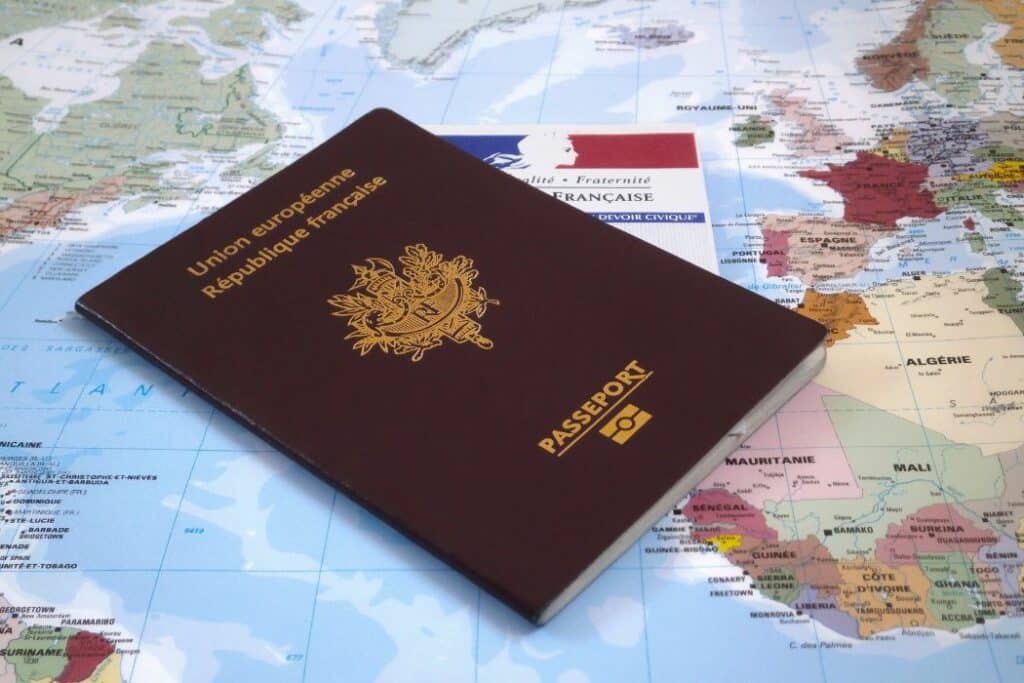You live in a country other than France and don’t know where to pay your taxes?
Are you preparing to move abroad and want to know what taxation will apply to your new situation?
French people abroad often have many questions about their tax obligations, and the answers they get are not always satisfactory. Here’s an overview of the current tax situation for French expatriates.
Know your tax residence
The most important point is to determine the expatriate’s tax residence, or domicile: this is essential to know whether the expatriate is subject to French tax law or that of the host country.
Tax residence in France
If you remain domiciled in France, French law applies, even if you live abroad.
In such a case, you must declare all your income, even that from abroad, in France, and pay income tax as if you’d never left.
Foreign tax residence
When you leave France and establish your new domicile in a new country, you are liable for tax in the country where you are expatriated.
However, even if you are not a French tax resident, you will be taxed in France for :
- All your French-source income, whether salaried or self-employed. In particular, income from securities and retirement pensions of French origin are subject to taxation in France.
- Your real estate assets located in France, on the basis of 3 times the estimated rental value of these dwellings.
How to determine your tax domicile
The country of tax residence is determined by three well-defined criteria. An expatriate’s tax domicile remains in France if :
- His family (partner, children) is in France.
- Its main professional activity or the majority of its economic interests are in France.
- Its main place of residence (more than 180 days per year) is in France.
Contrary to popular belief, your country of tax residence does not depend on your citizenship. Thus, acquiring dual nationality does not entail a change in tax domicile.

Here are a few concrete examples:
- An expatriate works in London as a computer developer, but returns to France every weekend to be with her husband and children, who remain in Paris.
= > Tax residence in France, where the family has stayed
- A young couple takes a sabbatical to volunteer for 4 months in South America.
= > Tax residence in France, where the couple resides for more than 180 days a year
- A single woman who has invested in property in France moves to Spain and lives off her rental income.
= > Tax residence in France, where most of the economic interests are located
- A family sells its house to move to Germany, where the parents have found work and the children are enrolled in a local school.
= > Tax residence outside France, where the family no longer resides and where no professional activity is carried out.
Double taxation and tax treaties between countries
The risk of double taxation may arise when France and the country of expatriation both consider that the French national living abroad is subject to its tax system.
This could be the case, for example, of a Frenchman sent on a 3-month mission to another country:
- As his main place of residence is France, he is a French tax resident under European law.
- The country of expatriation may consider that any salary earned on its territory is subject to local tax.
In reality, agreements between countries make it possible to avoid this situation in most cases.
Moving to another EU country
The criteria for determining tax residence are the same throughout the European Union. This avoids any ambiguity about the tax domicile, and therefore the tax regime, that applies to French expatriates in other European countries, but also to any foreigner moving to France.
However, it should be stressed that this in no way means that expatriates will not have to pay taxes in their country of residence!
Depending on the laws of each country, some income may be subject to local taxes. This is the case, for example, for a French person whose tax domicile is abroad but who has kept an apartment in France.
In such situations, double taxation can be avoided by means of bilateral agreements.

Expatriation outside the European Union
From a tax point of view, expatriation to a country outside the European Union is no different from moving to another European country:
- It is necessary to determine the place of residence to know which tax regime applies.
- Some taxes may be payable in both countries.
- Bilateral tax treaties regulate these special cases.
France has signed tax treaties with many countries, and it is advisable to find out about any specific provisions in the country of expatriation.
If a French person decides to settle in a country with which no tax treaty has been signed, double taxation is likely. To avoid such a situation, it’s advisable to seek advice from specialists who can help you find the best solution.
☝️ If you are based outside France and have questions about your own or your company’s tax situation? Contact the Altermès teams!
👆 Would you like to find out more about our wealth management services or our digital accounting services for small businesses and start-ups?











